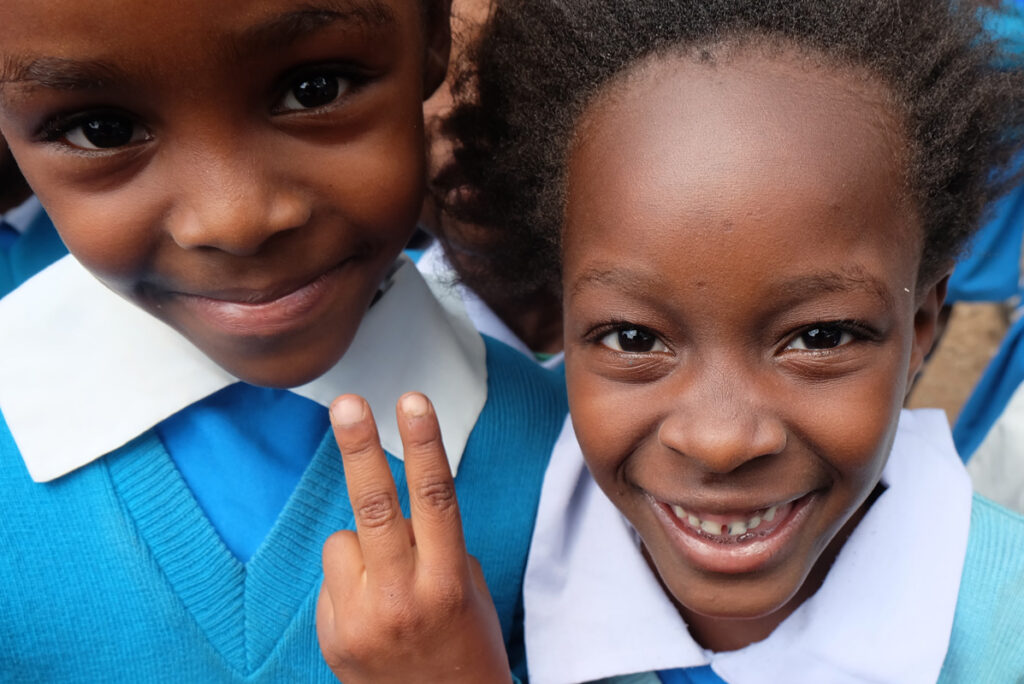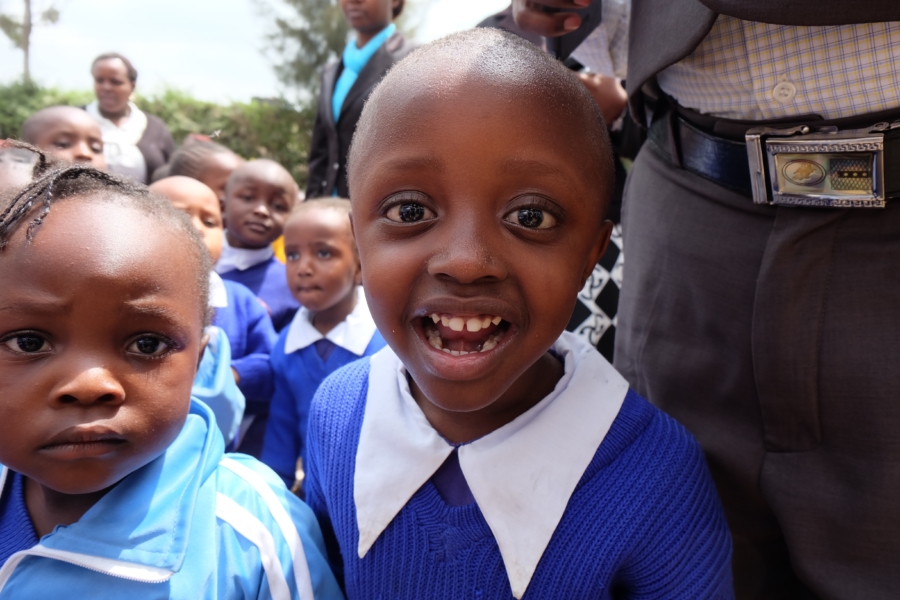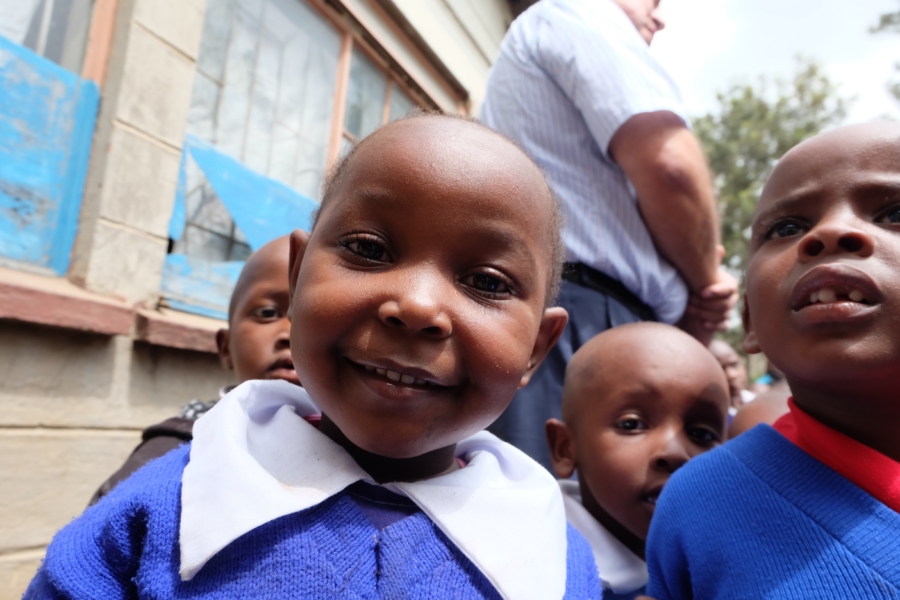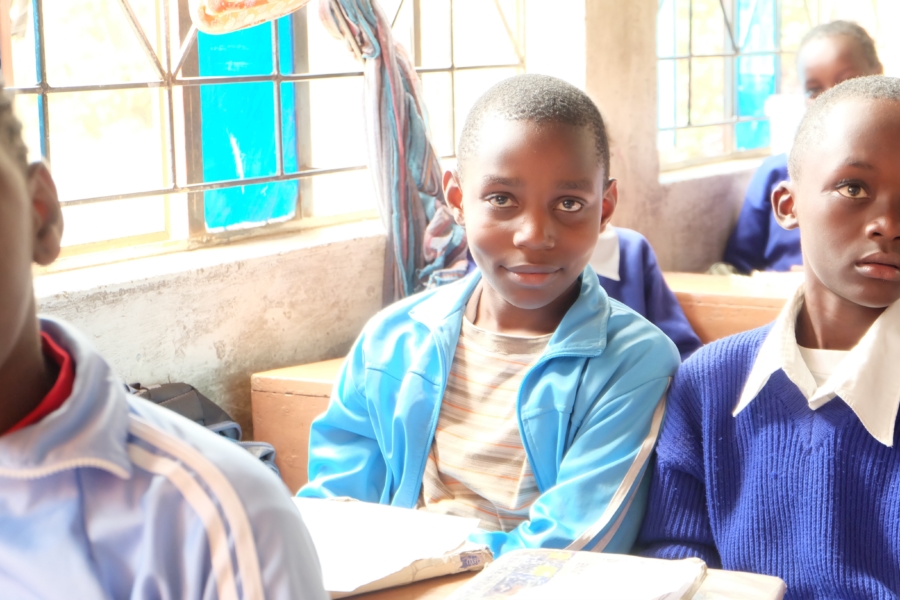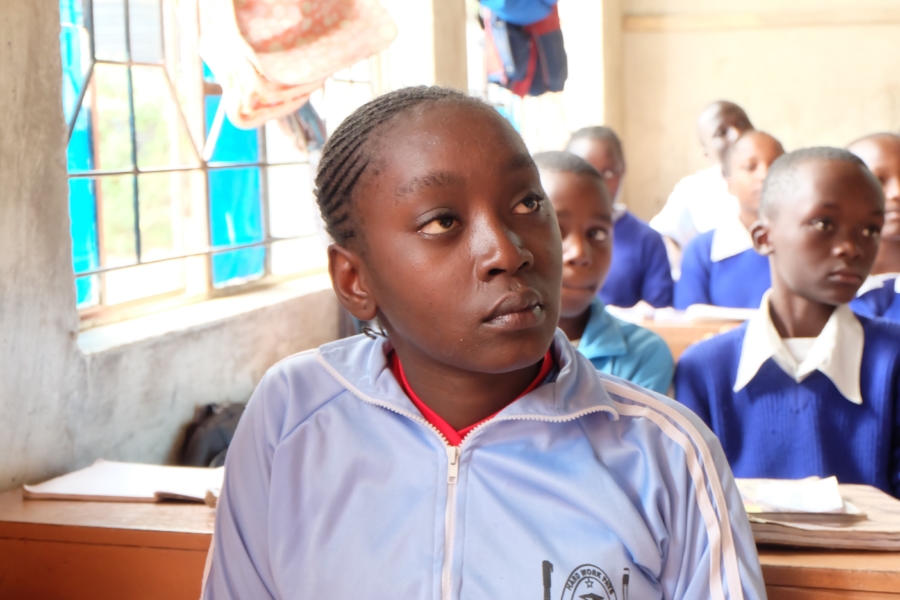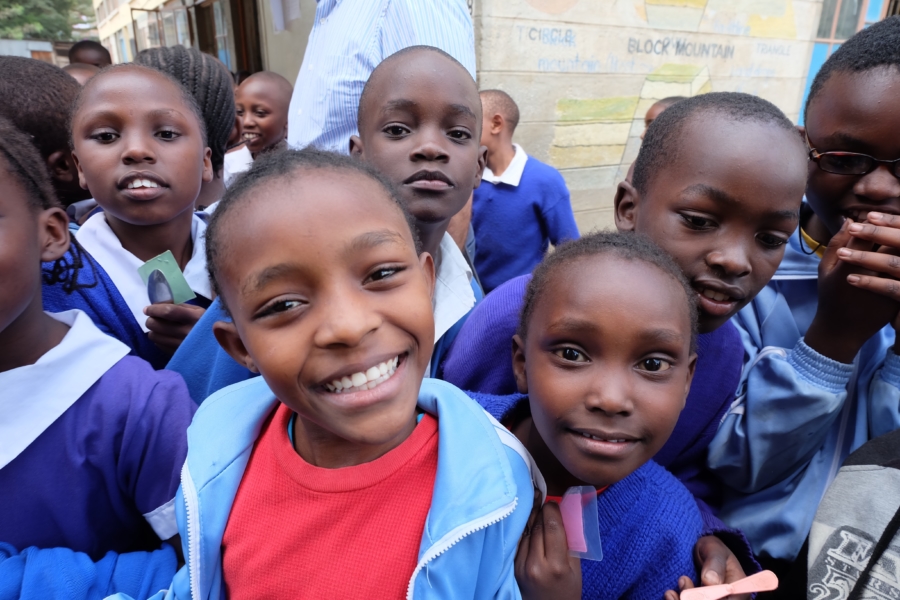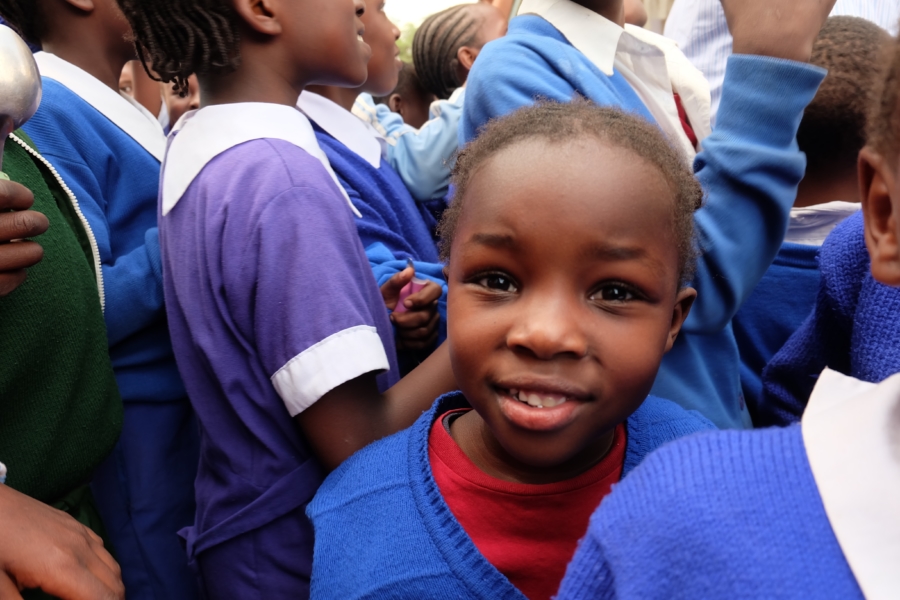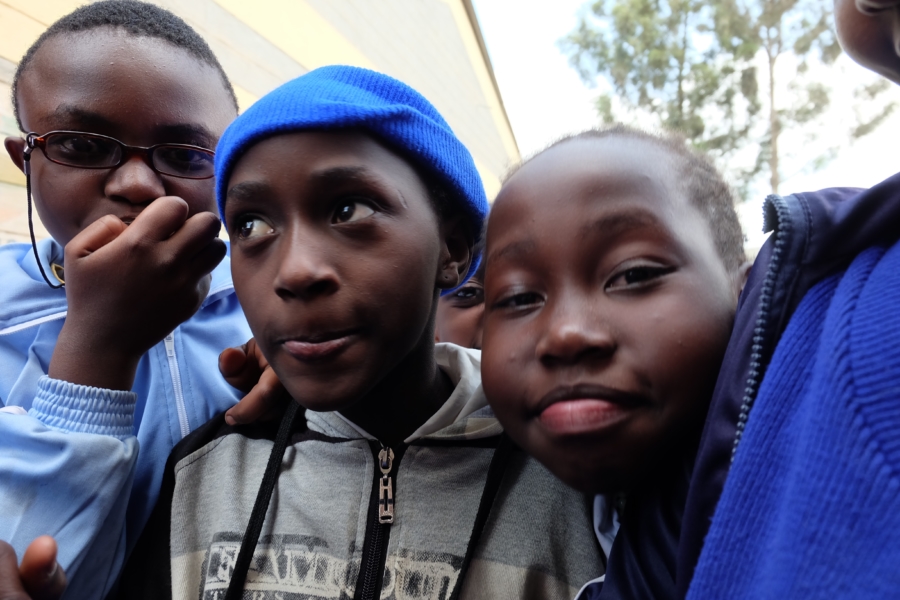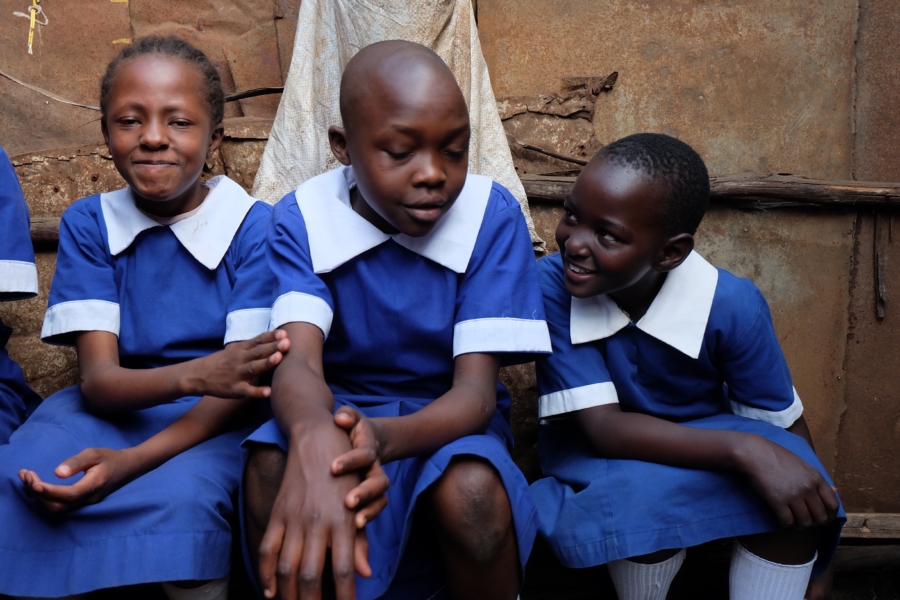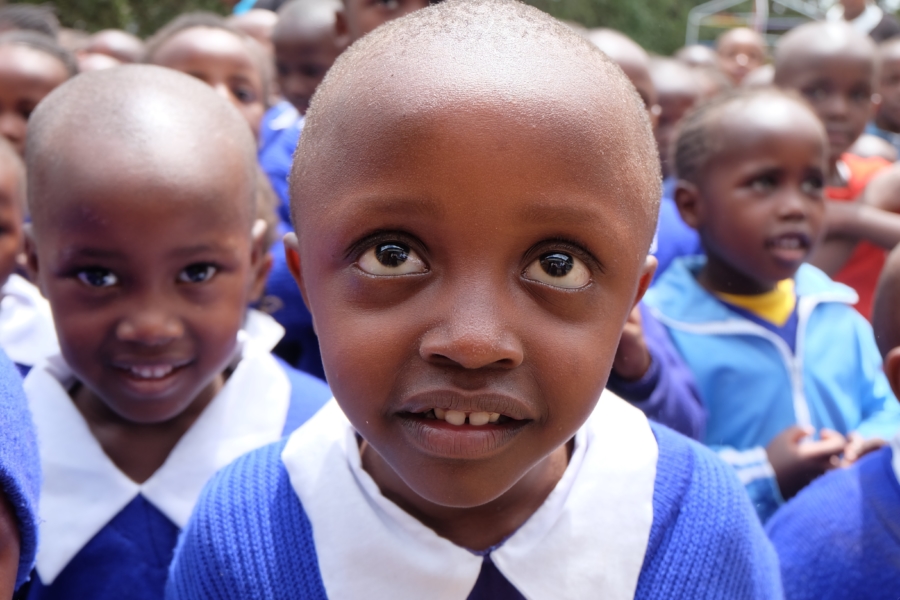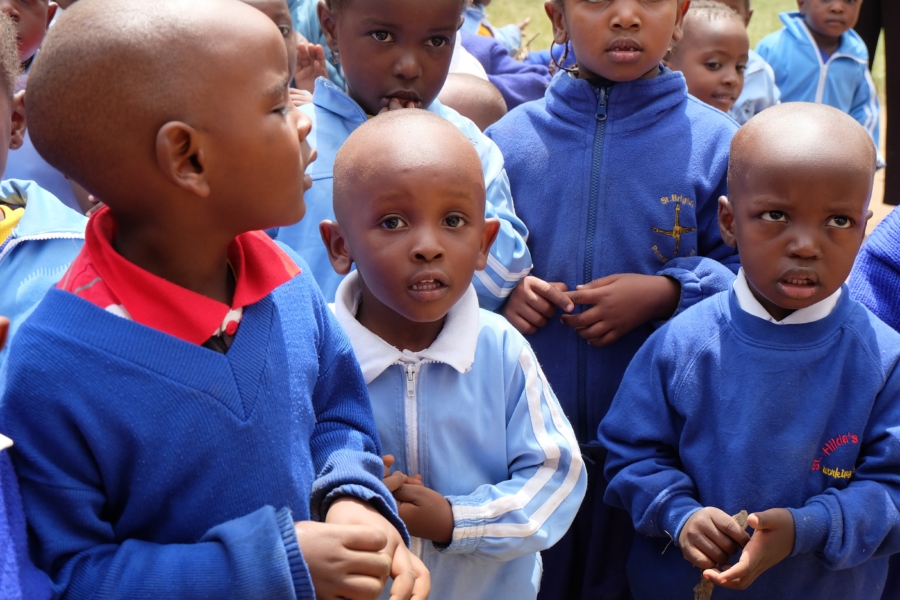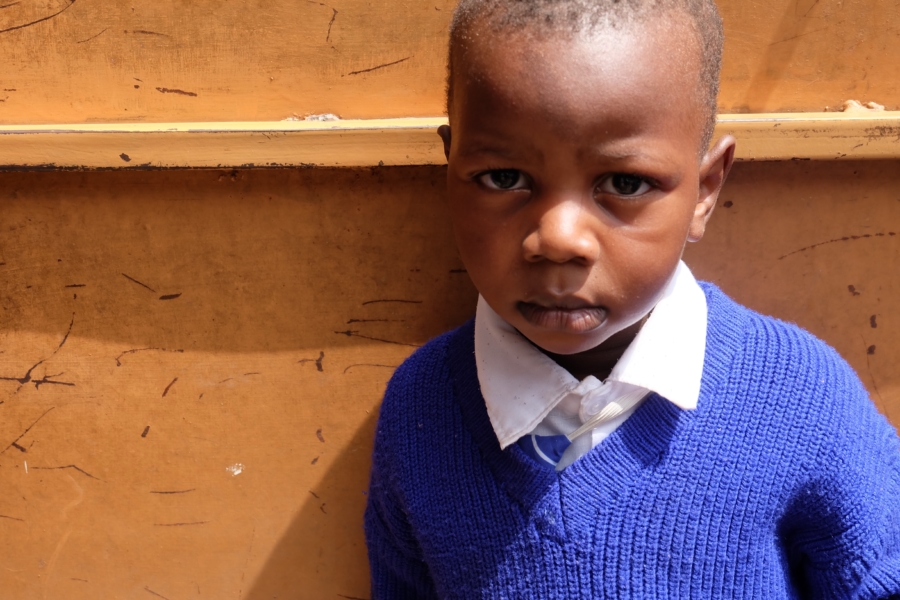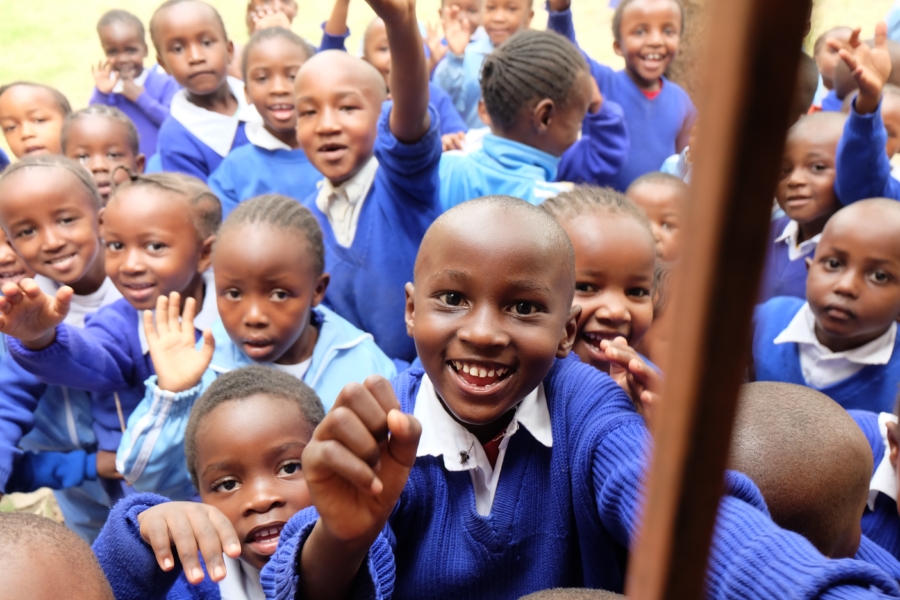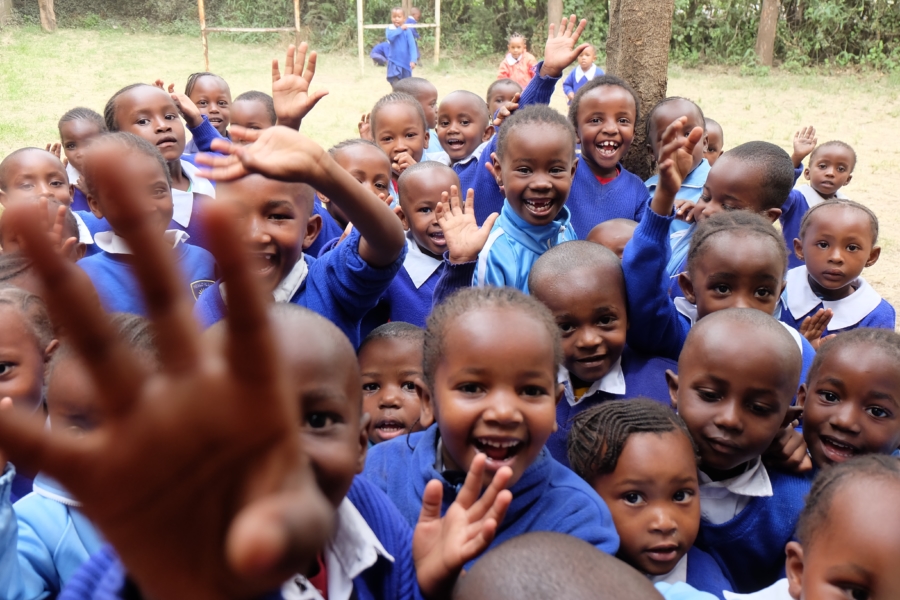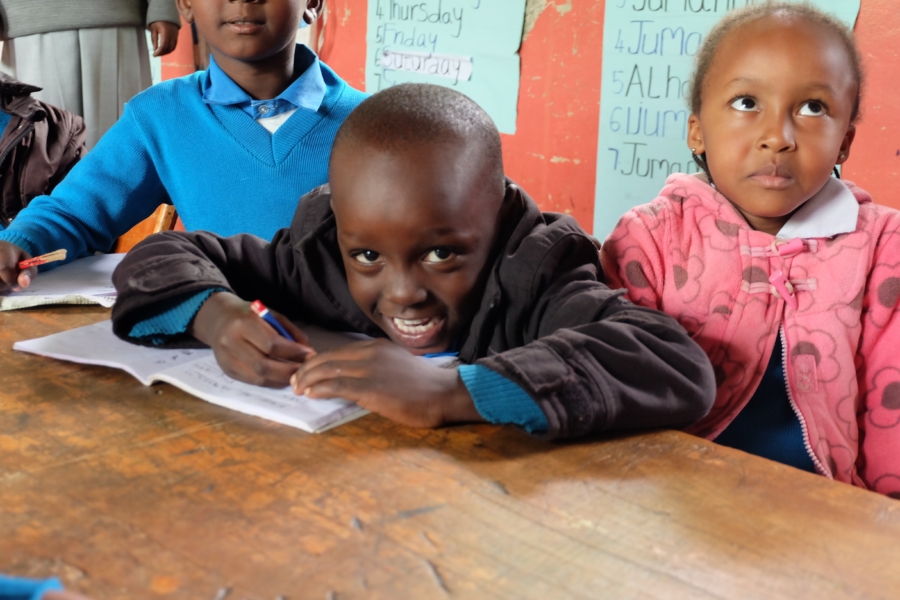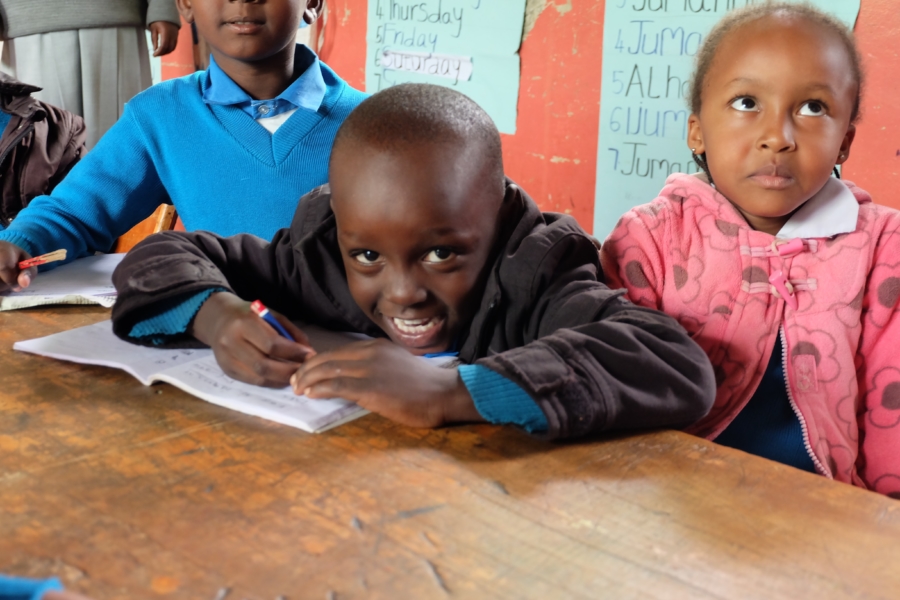When I boarded the plane to Africa, I thought I knew at least a little about what to expect. My experiences in Bolivia and Kentucky had shown me how impactful our programs could be on the lives of children in poverty, the poverty in Ethiopia and Kenya far surpassed what I ever could have imagined.
I returned knowing so much more about what children need to thrive—not just food and shelter, but education, respect, identity, and opportunity.
The Rainbow Amid the Addis Ababa Slums
I now find myself wishing there was a way to really give people at home an idea of what it’s like in some of the city slums in Ethiopia. Words and even photos only paint some of the picture — the eight-by-ten-foot homes with no windows or floor, the constant hunger, the desperation. But with that picture I’d want to show how even a small school,which so many Americans take for granted,can change the course of a child’s life.
Words and even photos only paint some of the picture—the eight-by-ten-foot homes with no windows or floor, the constant hunger, the desperation.
The Rainbow Center, one of Children Incorporated’s volunteer partners, showed me the benefits of providing an education to children like Luele and Abel. Fasika, the program’s manager, coordinates volunteers to provide not just tuition but uniforms and supplies, following it up with personal visits and support. While their parents are busy earning money to pay for their exorbitant rent, it means the world to these kids to have someone personally invested in their well-being.
Growing a future in Shashamane
Even when thinking about the burdens placed on shoulders so small, it’s hard not to smile when I remember how delighted the children of Shashamane were to see their faces on my iPad screen. Their rural lives are easier in some ways than their urban counterparts, but in others, the poverty has hit harder. Families tend to have more room to breathe out here, but transportation is difficult with less infrastructure and more land to traverse.
We spoke with Bisrat Sime, who oversees Kids Hope, about how Children Incorporated can help with the most basic need —food. Our 17 sponsored children in the program receive tuition, uniforms, supplies, and transportation to school, but the community is in desperate need of even seeds and fertilizers to help their field produce crops. I recalled the Ethiopian famine of the 1980s as I noticed just how thin everyone is in Shashamane.
A path forward for Kenyan girls
The Materi School for Girls is a living reminder of how just one person can make a tremendous impact, even after their death. Brother John Konzka founded the school in a village called Taraka to give opportunities to Kenyan girls, and now, two years after his passing, it’s easy to see the results of his tireless efforts. I think about how peaceful it seemed to watch students studying in the shade, singing songs together, knowing that these young women have so many more opportunities ahead of them than their mothers did.
I’ll never forget the joy and tenderness with which Vero, a young student, and her mother embraced after a long separation. It’s not easy for these families to live apart while their children are at school, but many of them jump at the chance to give their daughters a good education.
Learning to be self-sustaining
Perhaps the most alarming circumstances I saw were in Nairobi, but it was also where I witnessed the most hope. Msamaria is a community center for street children with a primary school that educates 268 students—a mix of boarding and day students. Being on the beautiful, lush grounds was a reminder of how these centers are quite a literal oasis for children from Nairobi’s slums.
The slums haunt me. During our home visits with our social worker, Caroline, I’d never seen so many destitute children in one place, so many of whom were orphaned or abandoned. I feel more determined than ever to help Children Incorporated grow its number of sponsored children at Msamaria.
It makes me smile to remember Naomi, the Msamaria School’s director, who is someone who works incredibly hard every single day. She’s turned the school into a self-sustaining wonder, with a successful bottled water business and a growing agricultural program.
I’m coming home with clear eyes, having seen for myself the difference that we can make, and I’m ready to get to work trying to make that difference for more and more children who need it. And so many do.
Every child I’ve met confirms Children Incorporated’s mission for me, but it’s the adults who are working so tirelessly so that these kids can have a better life—they’re the ones who keep coming to mind as I think back on my trip to Africa. They seem to have almost a superhuman ability to take a small amount of support from each of us and turn it into something bigger than the sum of its parts. The resourcefulness, the dedication, and the love that these men and women embody on a daily basis are a testament to how much we can do for future generations of Africans.
It’s tough to leave these children behind, but it’s been an invaluable trip. I’m coming home with clear eyes, having seen for myself the difference that we can make, and I’m ready to get to work trying to make that difference for more and more children who need it. And so many do.
***
HOW DO I SPONSOR A CHILD IN KENYA?
You can sponsor a child in Kenya in one of three ways – call our office and speak with one of our sponsorship specialists at 1-800-538-5381, email us at sponsorship@children-inc.org, or go online to our donation portal, create an account, and search for a child in Kenya that is available for sponsorship.

